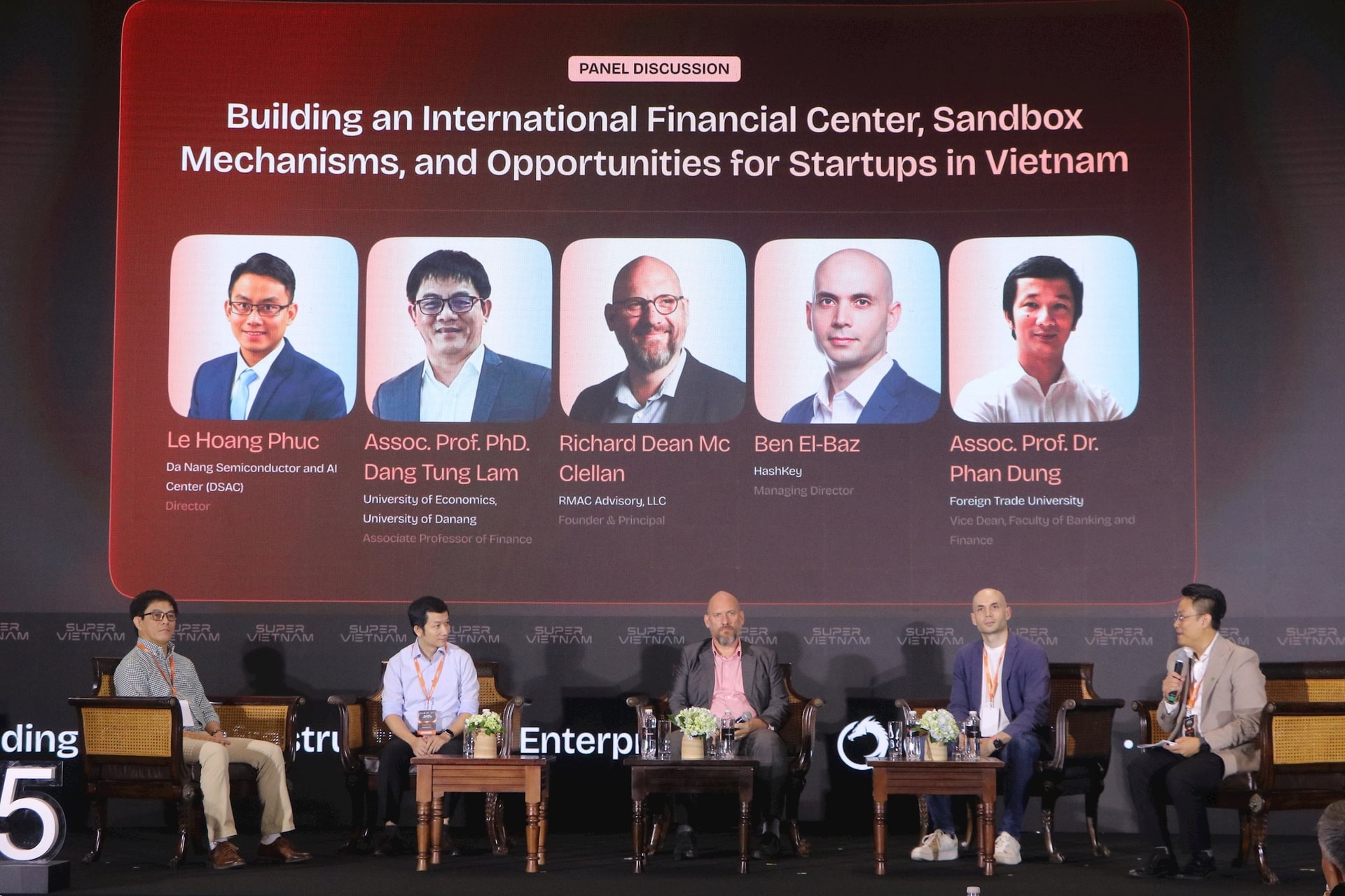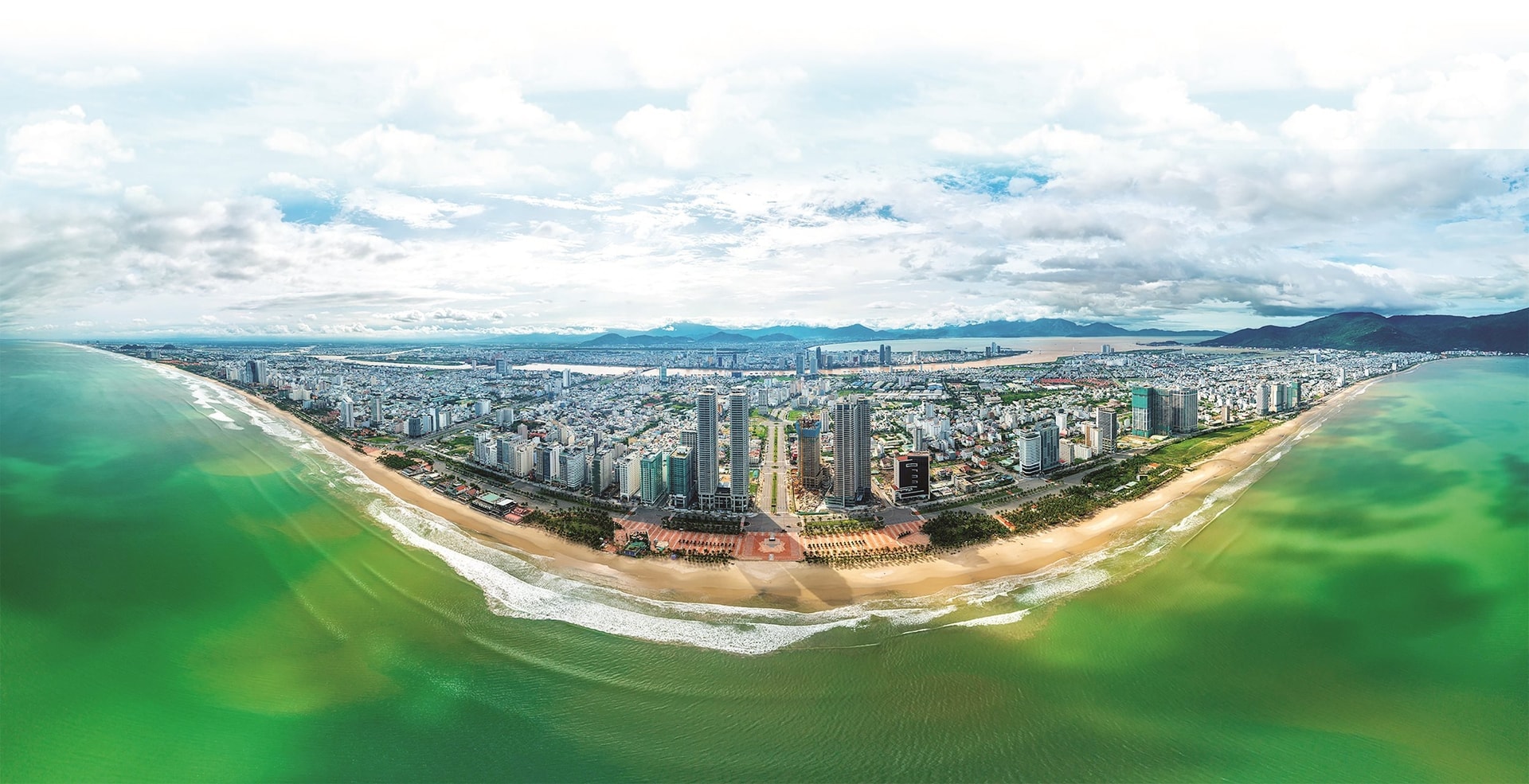What should Da Nang do to establish itself on global startup map?
According to the 2025 Global Startup Ecosystem Index (GSEI) ranking released by StartupBlink, Da Nang has moved up 130 places, now ranking 766th in the world.

This significant improvement not only reflects the dynamic development of the local startup ecosystem but also emphasizes the urgent need for a breakthrough strategy to help the city reach further on the global innovation stage.
A push to create momentum
According to Mr. Nguyen Van Chuong, manager of the Swiss Entrepreneurship Programme in Da Nang, in StartupBlink's GSEI ranking, the three main factors used to evaluate and rank a startup ecosystem are quantity, quality and business environment.
These factors are applied to measure the scale and density of startup activities in a locality; assess the quality and influence of the elements in the ecosystem; and measure the convenience of the legal environment, infrastructure and policies for startups.
The city’s notable increase of 130 places against the 2024 rankings clearly reflects the rapid growth of startups in the city and the increasing number of meetup events thanks to tax-free support policies and such facilities as the Da Nang Software Park No. 2. However, Da Nang must continue working to narrow the gap with the top 500 leading cities worldwide, with focus on improving such indicators as the number of unicorn startups and research and development (R&D) centers from international companies, and the English Proficiency Index (EPI).
Meanwhile, Mr. Aaron Everhart, Director of the Draper Startup House (DSH) Viet Nam which is part of the startup ecosystem of Draper Venture Capital Fund, commented that Da Nang is possessing a vibrant ecosystem with many new technology startups. The rapid development of SaaS tools, low-code platforms, AI and blockchain has helped shorten the distance from ideas to experimental products. These technologies make starting a business easier, more economical and more practical than ever.
One of the key events contributing to the rise of Da Nang is the Da Nang Venture and Angel Summit (DAVAS) 2025. This forum served as a meeting place for founders, investors, advisors, support organizations, and businesses.
According to Mr. Aaron, the successful organization of the event over the past two years demonstrates that Da Nang is creating opportunities to strengthen connections between businesses, ranging from multinational corporations to small and medium-sized enterprises (SMEs), and the innovation ecosystem which includes incubators like Draper Startup House and Kilsa Global.
In particular, the launch of innovation spaces with prominent countries and territories in the global startup ecosystem in the city marks a breakthrough development, playing a key role in creating momentum for the Da Nang ecosystem. Within the framework of the recent DAVAS 2025, the city launched the Da Nang - Greater Bay Area Innovation Space.
Ms. Tran Hanh Trang, CEO and founder of Enosta Group, stated that this initiative is a strategic move to connect Da Nang's startup ecosystem with leading technology and financial centers in the region, such as Shenzhen, Guangzhou, Hong Kong, and Macau (China). These spaces will serve as essential platforms for local startups to access international markets, financial resources, advanced technology, and a team of skilled experts. Additionally, these spaces will provide an ideal environment for incubating ideas, sharing knowledge, and fostering investment collaboration between Da Nang and other regions, and vice versa.
According to the Innovative Startups Support Centre under the municipal Department of Science and Technology, to date, the city has issued nearly 30 policies to support science and technology and innovative startups. Included are outstanding, breakthrough and unprecedented policies such as controlled testing of new technology solutions, tax exemption for innovative startup activities, support the use of science and technology infrastructure assets, and support information infrastructure assets to develop the semiconductor and artificial intelligence sectors.
In addition, the city is implementing long-term strategic plans, including the establishment of a Free Trade Zone, and the building of an International Financial Center, all promising to create momentum for Da Nang to make a breakthrough, creating a favorable business environment, and attracting domestic and foreign investment.
One of the notable points is the strong investment in startup infrastructure. In particular, the Da Nang Innovation Startup Space plays a central role in connecting and supporting startup projects. The Software Park No. 2 boasts a floor area of over 92,000 m², designed to accommodate 6,000 employees, with a focus on the semiconductor and AI industries. A modern digital infrastructure is supported by international submarine optical cables, including APG and SEMEWE 3. Information and communication technology infrastructure meets international standards.
Breakthrough to improve rankings
According to Mr. Aaron Everhart, Da Nang is currently one of the leading cities in Viet Nam for innovation. The city has implemented pioneering policies, including a "sandbox" pilot model, technology parks, and several specialized startup support centers tailored to various industries and technology fields.

He, therefore, underlined a must-do for the city to build a challenge portal for businesses to raise practical problems and for startups to propose appropriate solutions, aimed at shortening the gap between ideas and market demand.
He stressed the necessity for the city to promote connections between startup support organizations such as incubators, startup support organizations and the business sector, from multinational corporations to small and medium-sized enterprises.
On the other hand, efforts should be made to maintain post-event support programmes such as seminars, and in-depth training on technology, business, soft skills and foreign languages, thereby creating a solid foundation for startups to access capital and develop sustainably. “With the support of international partners such as Draper Startup House and Kilsa Global, Da Nang will become the leading startup center in Asia", Mr. Aaron Everhart expressed his belief.
According to Mr. Nguyen Van Chuong, the city needs to implement a comprehensive set of solutions based on three main pillars: quantity, quality, and business environment, to enhance its ecosystem.
One of the key actions is to boost the number of startups by attracting 100 to 200 new ones from both regional and international markets. This can be achieved through tax exemption policies and financial support. Additionally, the city should expand by 20 to 30 co-working spaces and establish connections with organizations such as Swiss EP and the Center for Supporting Innovative Startups (DISSC). To foster greater interaction among entrepreneurs, the city aims to organize 50 to 70 networking events each year. There will also be a focus on developing specialized incubation programs in industries such as AI, blockchain, cross-border e-commerce, food technology, and life sciences, to create a unique identity for the Da Nang startup ecosystem.
In addition, importance should be attached to attracting international R&D centers such as Nvidia, Marvel, Soitec, FPT, Viettel to locate at Software Park No. 2; as well as upgrade DAVAS to a large-scale event, with over 1,000 participants, with the participation of experts and global founders.
Moreover, it is necessary to improve the business environment by simplifying procedures, implementing startup visas and visas for digital nomads, attracting international experts, improving digital infrastructure, and increase the English Proficiency Index through English training programs at 18 universities in the area.
